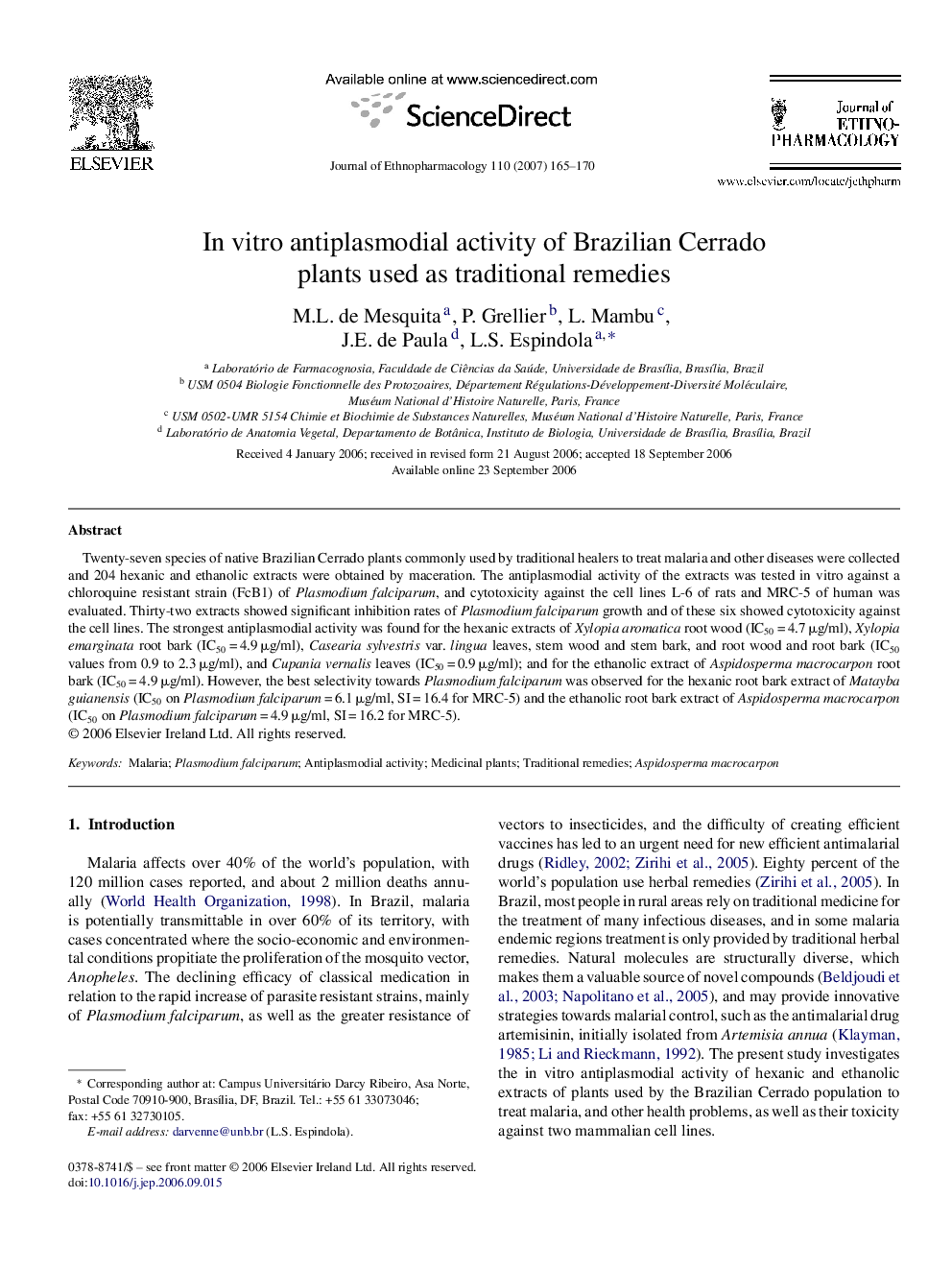| Article ID | Journal | Published Year | Pages | File Type |
|---|---|---|---|---|
| 2547177 | Journal of Ethnopharmacology | 2007 | 6 Pages |
Twenty-seven species of native Brazilian Cerrado plants commonly used by traditional healers to treat malaria and other diseases were collected and 204 hexanic and ethanolic extracts were obtained by maceration. The antiplasmodial activity of the extracts was tested in vitro against a chloroquine resistant strain (FcB1) of Plasmodium falciparum, and cytotoxicity against the cell lines L-6 of rats and MRC-5 of human was evaluated. Thirty-two extracts showed significant inhibition rates of Plasmodium falciparum growth and of these six showed cytotoxicity against the cell lines. The strongest antiplasmodial activity was found for the hexanic extracts of Xylopia aromatica root wood (IC50 = 4.7 μg/ml), Xylopia emarginata root bark (IC50 = 4.9 μg/ml), Casearia sylvestris var. lingua leaves, stem wood and stem bark, and root wood and root bark (IC50 values from 0.9 to 2.3 μg/ml), and Cupania vernalis leaves (IC50 = 0.9 μg/ml); and for the ethanolic extract of Aspidosperma macrocarpon root bark (IC50 = 4.9 μg/ml). However, the best selectivity towards Plasmodium falciparum was observed for the hexanic root bark extract of Matayba guianensis (IC50 on Plasmodium falciparum = 6.1 μg/ml, SI = 16.4 for MRC-5) and the ethanolic root bark extract of Aspidosperma macrocarpon (IC50 on Plasmodium falciparum = 4.9 μg/ml, SI = 16.2 for MRC-5).
